The Russian government saw firsthand the threat of an armed uprising this weekend, as soldiers from the private military group Wagner marched toward Moscow. President Vladimir Putin had promised to use appropriate sanctions, but a surprise deal was struck that quickly quelled the crisis.
The immediate risk of bloodshed appears to have been eliminated, but many uncertainties remain, with many experts warning that the possibility of a riot, although rare, could still have far-reaching consequences.
President Putin must deal with the consequences of the most serious challenge to his authority since he took office 20 years ago, after it left him at a disadvantage for more than a day and a half.
The fate of Yevgeny Prigozhin, the director of Wagner and the man who led the march and the occupation of cities on the way to Moscow, remains in doubt. The usually outspoken Russian oligarch has kept quiet about the details of the deal brokered by the Minsk government, which would see him returned to Belarus and Wagner absorbed into the Russian military.
Kremlin and Belarusian government officials were unclear about his whereabouts on Sunday.
According to CNN, on Sunday, some Belarusian officials said they did not know the details of Mr. Prigozhin's role in Belarus and could not verify his arrival in the country.
The press service of Mr Prigozhin's Concord agency declined to provide an update, saying only that he “sent greetings to everyone and will answer questions when he has appropriate communication methods”.
A Kremlin spokesman said the criminal case against Mr Prigozhin and the recent uprising would be dropped.
Wagner fighters would sign contracts with the Russian Defense Ministry , a request that Prigozhin has rejected as a move to control his paramilitary force.
Videos verified and located by CNN on Saturday showed Mr. Prigozhin and his forces withdrawing from the southern Russian city of Rostov-on-Don.
The origins of the uprising
The crisis in Russia erupted last Friday after Mr Prigozhin accused the Russian military of attacking a Wagner camp and killing several of its soldiers, and vowed to retaliate with force.
Mr Prigozhin then sent troops to Rostov-on-Don and claimed to have taken control of military facilities in the Voronezh region, where several clashes between Wagner and Russian troops were reported to have taken place.
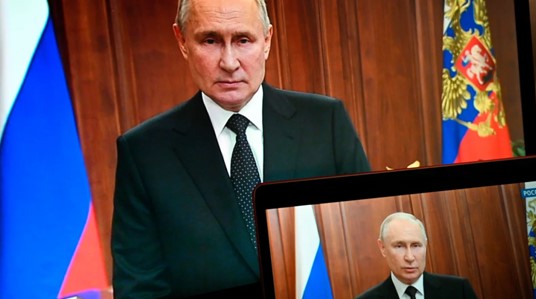
President Vladimir Putin appeared on national television after the Wagner group's uprising broke out on June 24. Photo: Pavel Bednyakov/Sputnik via AP
The Russian Defense Ministry denied claims it had attacked Wagner soldiers, and Russia's internal security service opened a criminal investigation into Prigozhin.
This was followed by a speech to the nation by Mr Putin.
In a speech broadcast to all of Russia on Saturday morning local time, President Putin expressed his anger and promised to punish individuals “on the path of treason”.
Wagner's “treasonous act” was “a stab in the back against the nation and the entire people,” he said, comparing the group's actions to the 1917 Russian Revolution that overthrew Tsar Nicholas II in the midst of World War I.
The situation in the locality is tense, with citizens of the Voronezh region advised to stay indoors. At the same time, Moscow authorities have stepped up security measures across the capital, declaring Monday a non-working day. Some images show Russian military personnel wearing bulletproof vests and automatic weapons near a highway on the outskirts of Moscow.
Signs point to a possible armed confrontation in the capital Moscow amid growing rumors and unrest.
Surprisingly, this short-lived coup was put down shortly after, after the Belarus agreement was signed.
The Future for Prigozhin and Wagner
Several questions remain unanswered, such as Mr Prigozhin's role in the Wagner group and the war with Ukraine, as well as whether his soldiers might be contracted to the Russian military.
A Kremlin spokesman said on Saturday he “could not answer” about Mr. Prigozhin’s role in the Belarusian government. Mr. Prigozhin himself has offered little information about his agreement to halt the advance toward Moscow.
According to retired US Army Major Mike Lyons, Wagner is “an independent military organization” with some distinct characteristics compared to the Russian military. For example, Wagner soldiers have a more complete diet than their Russian counterparts, which means it will be difficult to fully integrate Wagner soldiers into the Russian military.
“It is very possible that some soldiers will split from the organization. These people owe their loyalty to Prigozhin, not to the country or the task of defending the homeland. I think we still have too many unanswered questions,” he added.
Experts believe that the leadership of the Wagner organization is not completely out of danger.
“Putin doesn’t forgive traitors,” said Jill Dougherty, CNN’s former Russia bureau chief and longtime expert on Russian affairs. “Even if Putin said, ‘Prigozhin, you’re going back to Belarus,’ he’s still a traitor and I don’t think Putin would ever forgive that.”
She also added that it was very possible that Prigozhin would be “assassinated in Belarus”, but this was a dilemma for the Moscow government, because as long as Mr. Prigozhin “remains supported, he will remain a threat, no matter where he is”.
What will Putin do?
President Putin will now face a number of problems.
According to CNN, some experts believe that although the Russian president has overcome the confrontation, he has also shown his weakness - not only to the world and his enemies, but also to the military and his people at home. This could bring great risks from skeptical or hostile factions in the Moscow government who see this as an opportunity to undermine Mr. Putin's role.
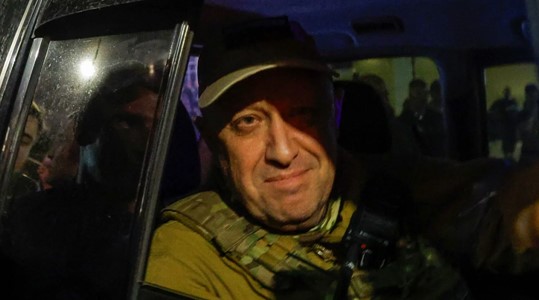
Wagner group leader Prigozhin in the back seat of a car leaving Rostov-on-Don, Russia on June 24. Photo: Alexander Ermochenko/Reuters
A video verified and located by CNN shows crowds cheering as Mr. Prigozhin’s car leaves Rostov-on-Don. The car stops when a person approaches and shakes Mr. Prigozhin’s hand.
“Why are Russians on the streets cheering people who just staged a coup? It could mean that those citizens support them or appreciate them. Whatever the meaning, it is bad news for Putin,” said Ms. Dougherty.
Causes of the coup
Mr. Prigozhin has known President Putin since the 1990s, earning the nickname “Putin’s chef” after receiving a catering contract at the Kremlin. However, the Russian-backed separatist movement in Ukraine in 2014 set the stage for Mr. Prigozhin’s transformation into a warlord.
Mr. Prigozhin founded the Wagner organization as a private military unit fighting in eastern Ukraine and a growing number of conflicts around the world for Russia's benefit.
The group has come into focus in the war with Ukraine, after its soldiers achieved successes that the Russian army failed to achieve. However, its brutal tactics are said to have left heavy casualties.
As the war dragged on, Prigozhin and Russia's military leadership clashed publicly, with Wagner leaders criticizing the Russian army for failing to provide enough ammunition, and bemoaning the lack of battlefield success of regular army units.
He has repeatedly criticized the Russian military's handling of the conflict, describing himself as ruthless and efficient compared to them.
Mr Prigozhin has always been careful to direct his criticism at Russia’s military leadership, not Mr Putin, and has defended the rationale behind the war in Ukraine.
That changed in the coup last Friday.
In a statement, he said the Moscow government invaded Ukraine under false pretexts concocted by the Russian Defense Ministry, and Russia is actually losing the battle on the battlefield.
Steve Hall, former head of the CIA's Russia operations, said even longtime observers of Russia's internal affairs have been surprised by recent events.
“Everyone is scratching their heads,” he said. “The only way I can explain it is that two sides realized they were in a precarious situation and they needed to find a way out of it.”
Mr. Hall said Mr. Prigozhin may have realized he had begun a move beyond his control as Wagner troops marched toward Moscow. At the same time, Mr. Putin was faced with the prospect of having to take out some 25,000 Wagner soldiers.
The decision to send Mr. Prigozhin to Belarus was a face-saving decision for both sides.
However, Mr. Hall also believes that Mr. Putin came out of the event in a weakened position.
“Mr Putin should have realised this could happen months ago. But we will see what happens next, I don’t think this is completely over.”
Nguyen Quang Minh (according to CNN)
Source


![[Photo] Prime Minister Pham Minh Chinh chairs the Government's online conference with localities](https://vphoto.vietnam.vn/thumb/1200x675/vietnam/resource/IMAGE/2025/10/5/264793cfb4404c63a701d235ff43e1bd)


![[Photo] Prime Minister Pham Minh Chinh launched a peak emulation campaign to achieve achievements in celebration of the 14th National Party Congress](https://vphoto.vietnam.vn/thumb/1200x675/vietnam/resource/IMAGE/2025/10/5/8869ec5cdbc740f58fbf2ae73f065076)


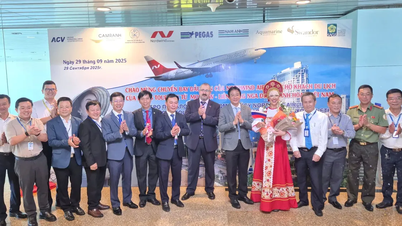

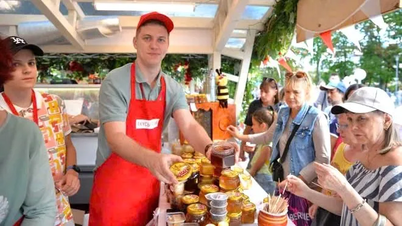


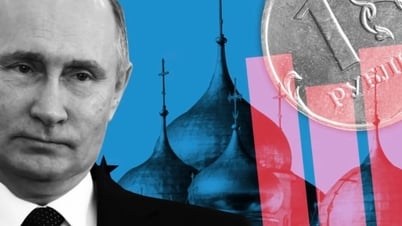





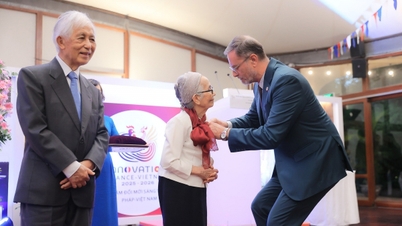

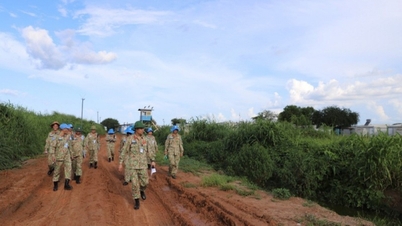


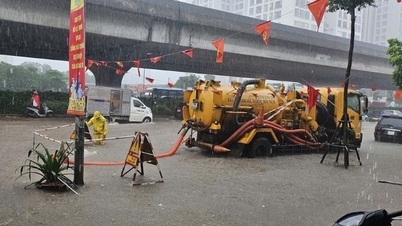
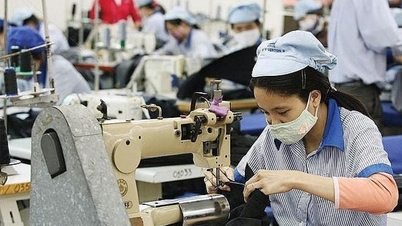

































![[VIDEO] Summary of Petrovietnam's 50th Anniversary Ceremony](https://vphoto.vietnam.vn/thumb/402x226/vietnam/resource/IMAGE/2025/10/4/abe133bdb8114793a16d4fe3e5bd0f12)

![[VIDEO] GENERAL SECRETARY TO LAM AWARDS PETROVIETNAM 8 GOLDEN WORDS: "PIONEER - EXCELLENT - SUSTAINABLE - GLOBAL"](https://vphoto.vietnam.vn/thumb/402x226/vietnam/resource/IMAGE/2025/7/23/c2fdb48863e846cfa9fb8e6ea9cf44e7)
















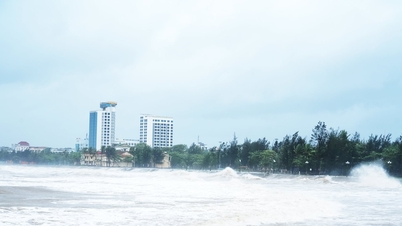




















Comment (0)